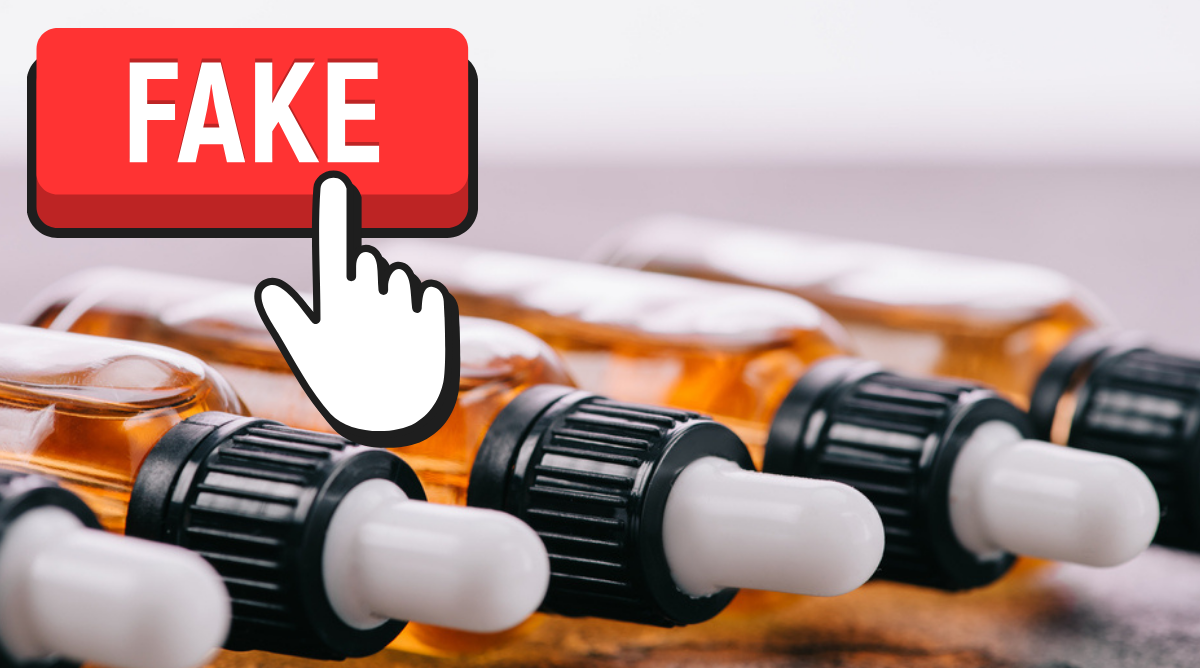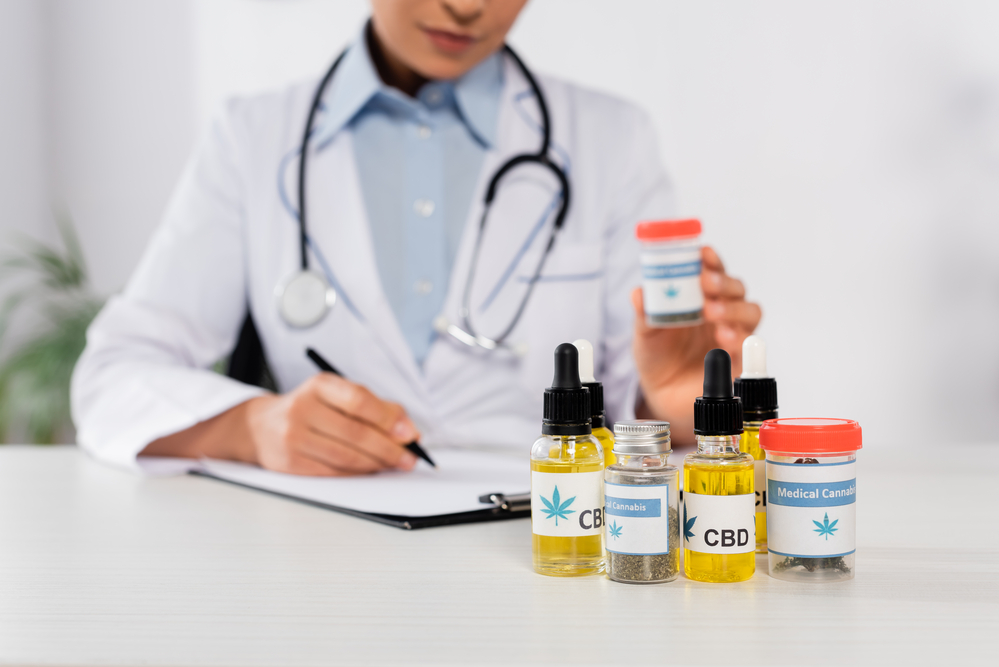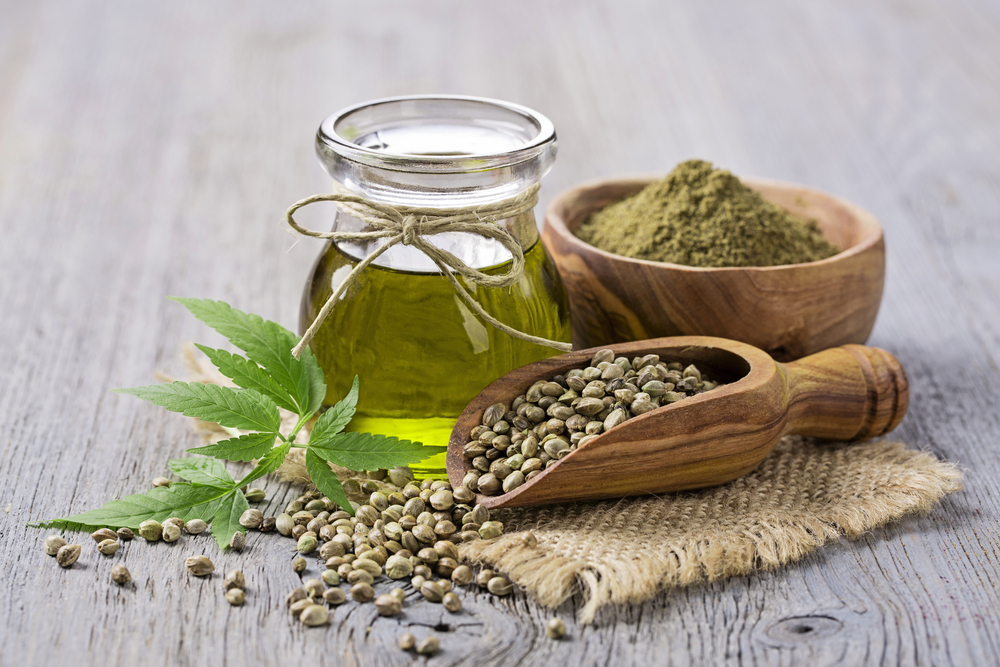
The FDA is cracking down on CBD oil and supplement manufacturers. The Food and Drug Administration believes that American consumers are being CB-Deceived by a growing number of low-quality CBD products sold. A new policing program called Operation CBDeceit is working to change that.
Every year, more clinical studies emerge that uncover potential health benefits of cannabidiol (CBD). But the clinical trials utilize real CBD extracts. Potent and clinical-grade CBD extracts. The public may not know that the cheap CBD oil being sold at a local tobacco shop, or gas station, may have no medicinal value.
Most consumers can’t determine the difference between a clinical-grade cannabidiol supplement and a cheap knock-off. The packaging looks very convincing, and the label may promise a high potency of cannabidiol. But what is inside the bottle doesn’t match the advertising claims and label.
According to Kristi Wolf, for the Cannabis Business Times, the FDA announced proposed settlements with six large CBD companies in December 2020. The legal settlements were finalized in March 2021. The fines penalized CBD manufacturers from making false wellness claims about the products. Some of the advertising from the offending CBD companies referred to the potential to cure and treat cancer, heart disease, hypertension, Alzheimer’s, and chronic pain.
The increased risk to American consumers is believed that CBD products will cure a health condition. One that could be life-threatening. And the belief in the curative properties of CBD may prevent patients from seeking medical attention, further complicating their health.

The Food and Drug Administration has no legal process for inspecting and testing supplement products. They aren’t authorized to review dietary supplements, and CBD falls under that category. The means any company can process and manufacture a CBD oil, for example. Without every being tested for safety, effectiveness, or potency.
The North American marketplace is literally flooded with imposter dietary supplements. And no product is more prolific in this category of ‘fake products’, than CBD. Anyone with a food manufacturing license can create a CBD product. Use non-holistic chemicals to suspend the oil and extend shelf life.
How confident are you that you could tell the difference between a real, clinical-grade CBD product, and an imposter CBD oil? The bottles look impressively professional, and some labels have very large potency claims. Deliberately to entice unsuspecting consumers into buying a substandard product with low medicinal value.
Here are some of the most common signs of a fake CBD product:
Want to be immune from CBDeceit? Buy CBD supplements from a dispensary. Even if you don’t have a medical card, it is federally legal for you to purchase CBD from a medical cannabis dispensary or business as long as the THC content is 0.30% or lower.

Many imposter products have little cannabidiol content. Or if they do, the CBD potency is too low to have any positive wellness benefit. When you buy CBD products from a dispensary, those products are regulated and tested, as required for commercial compliance.
A recent sampling of 17 products by the United Cannabis Business Association (UCBA) determined 42% of products failed safety testing. And 1.5% of the imposter CBD products had dangerous contaminants that could cause harm to consumers. That includes gummies, supplements, CBD oils, and vapes.
CBDeceit will seek and destroy some of the worst players and producers in the CBD market. And it will also help protect consumers from misinformation nd false cure claims.

The regulatory crackdown on imposter CBD products by the FDA has been going on since 2015. For the past six years, the Food and Drug Administration has been randomly testing and taking legal action against CBD products that make illegitimate health claims. The FDA has published a page on the website that lists CBD manufacturers who have been cited. The list of imposter CBD products keeps growing every year.
The FTC (Federal Trade Commission) has now launched a program called “CB-Deceit” to identify and remove imposter CBD brands from the marketplace. The fines to offending manufacturers can range from $25,000 to $85,000 or more. And funds are appropriated to provide a refund to consumers who purchased the fraudulent CBD products.
The collaborative partnership between the FTC and the FDA has stepped up in light of new CBD products and claims of health benefits. In 2020, several brands were isolated by the FTC and FDA, and some claimed that their CBD supplement could protect people from contracting the Covid-19 virus.
After legal action is completed, the CBD manufacturer must agree to 100% compliance for twenty years. If they repeat the same advertising, labeling, or promotional infractions, they can be fined $43,000 for every new violation.
Legitimate producers of cannabidiol supplements, who follow compliance and regulations, are also part of the fight. And applaud CBDeceit. Frequently imposter products are reported by legitimate CBD product manufacturers. As the problem of imported CBD products continues to grow, so does the joint regulatory and industry cooperation in educating consumers. And to remove toxic and misleading effects from retail shelves.
Featured Image: EdZbarzhyvetsky | Deposit Photos
No Information on MarijuanaDoctors.Com should be used to diagnose, treat, prevent or cure any disease or condition. You can view our Full Disclaimer here.